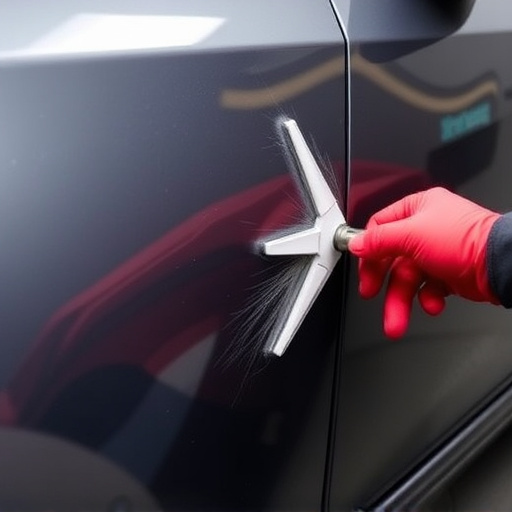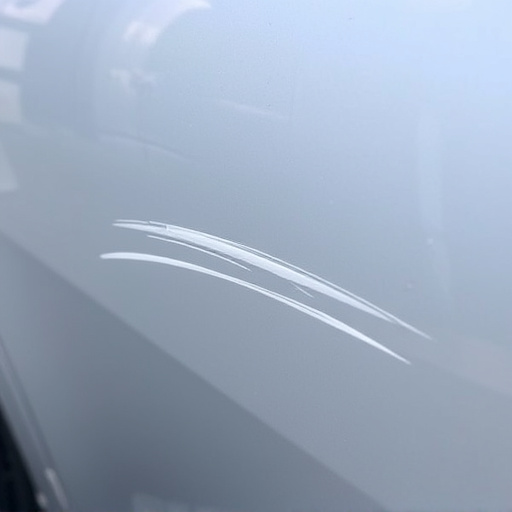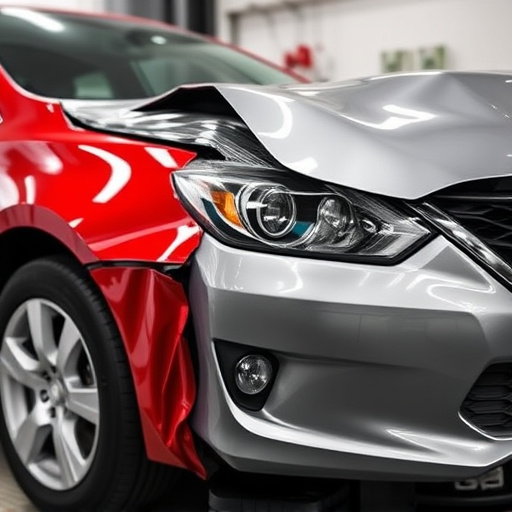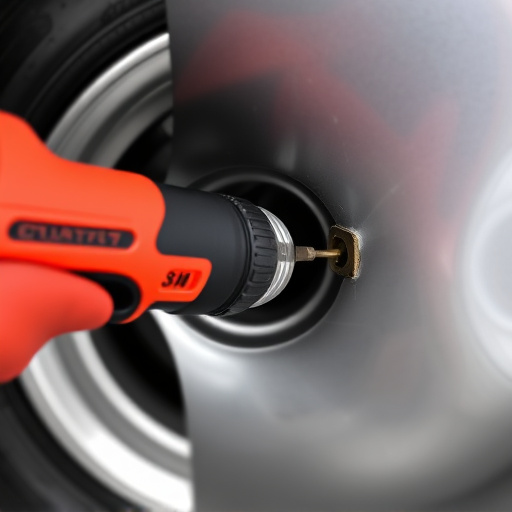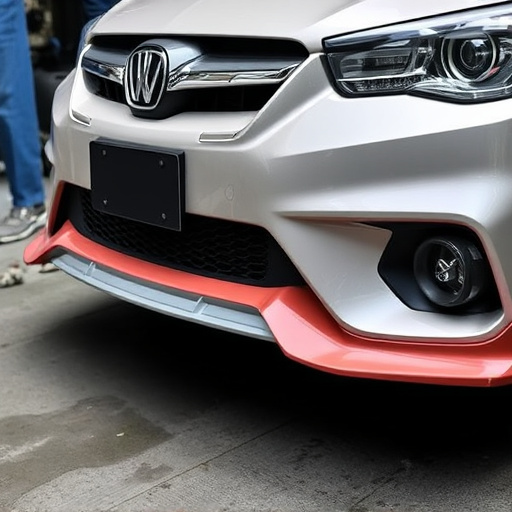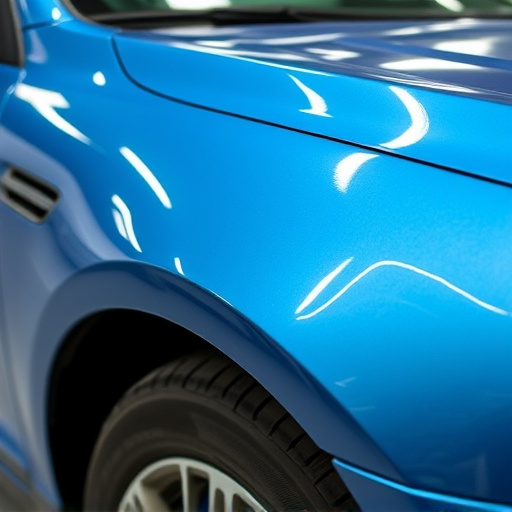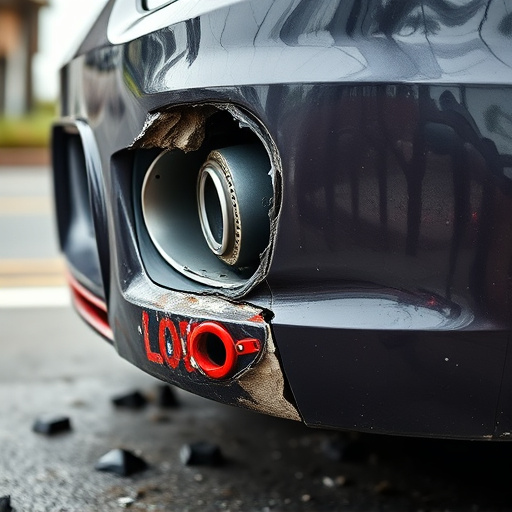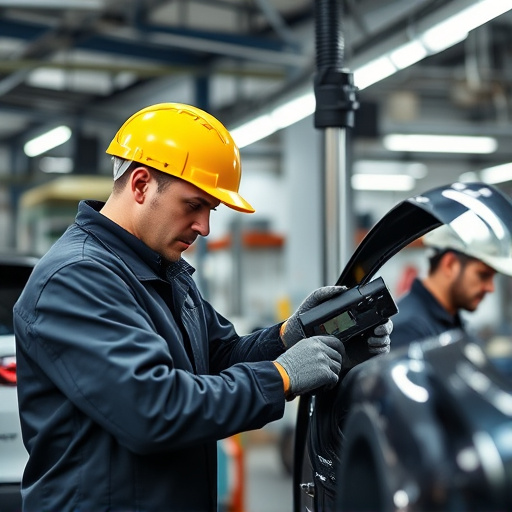Tesla's aluminum welding certification process revolutionizes automotive manufacturing by ensuring precise, industry-leading welds for enhanced safety and structural integrity. This training empowers professionals to repair and maintain electric vehicles' lightweight, corrosion-resistant aluminum frames, setting a new benchmark in the industry.
Tesla’s commitment to innovation extends beyond electric motors, with their adoption of aluminum welding for vehicle construction. This article delves into the significance of Tesla’s aluminum welding certification, exploring how it sets a new standard in automotive safety and quality control. By understanding the benefits of aluminum in manufacturing and the role of rigorous certification processes, we uncover why this technology is crucial for long-term vehicle reliability and performance.
- Understanding Tesla's Aluminum Welding Standard
- Benefits of Aluminum in Automotive Manufacturing
- The Role of Certification in Ensuring Safety and Quality Control
Understanding Tesla's Aluminum Welding Standard
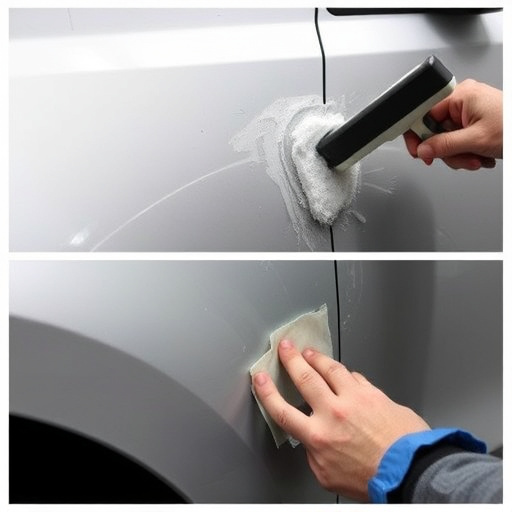
Tesla has set a new standard for automotive manufacturing with its innovative use of aluminum in vehicle construction. To ensure long-term safety and structural integrity, Tesla implemented rigorous aluminum welding certification processes. This certification guarantees that every aluminum component in their vehicles is welded to precise specifications, meeting or exceeding industry standards. The company’s commitment to excellence in this regard is a testament to their dedication to delivering top-tier, durable cars.
The process involves advanced training for automotive repair services professionals, who must master the art of welding aluminum without compromising quality. By focusing on precision and consistency, Tesla ensures that any potential weak points are addressed, be it in regular maintenance or collision damage repair scenarios. This attention to detail translates into enhanced safety features and a reduced risk of structural failures over the vehicle’s lifespan, setting a new benchmark in the industry, especially when compared to traditional steel welding methods and their associated limitations, like added weight and less flexibility in design.
Benefits of Aluminum in Automotive Manufacturing
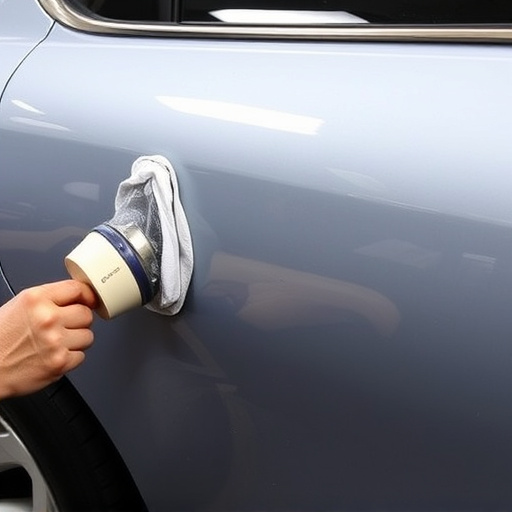
Aluminum has revolutionized automotive manufacturing due to its exceptional properties. Its lightweight nature significantly improves fuel efficiency and reduces overall vehicle weight, aligning perfectly with modern sustainability goals. This metal is also highly resistant to corrosion, ensuring that cars maintain their structural integrity over time. Moreover, aluminum allows for more design flexibility, enabling manufacturers to create sleek, aerodynamic shapes that enhance performance.
The integration of aluminum in vehicles has been steadily increasing, with Tesla leading the way through its innovative manufacturing processes and the stringent quality standards set by its aluminum welding certification programs. This certification ensures that every Tesla vehicle benefits from precise welds, strengthening joints and contributing to long-term safety and reliability—a critical aspect for any car, be it a Mercedes Benz repair or general vehicle body repair.
The Role of Certification in Ensuring Safety and Quality Control
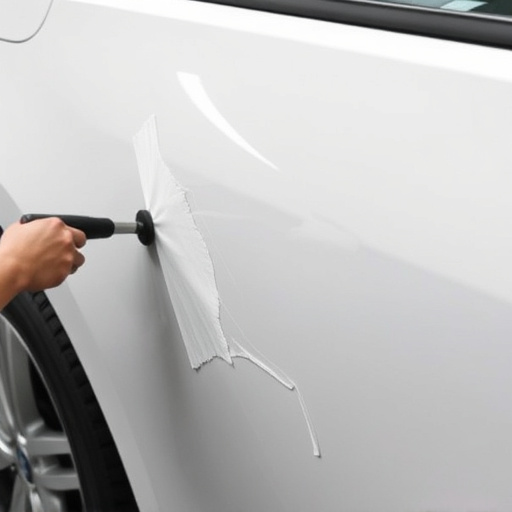
The Tesla aluminum welding certification is a crucial step in ensuring the safety and longevity of electric vehicles (EVs). This specialized training program equips technicians with the knowledge and skills to perform high-quality, precise welds on Tesla’s advanced aluminum chassis and components. By adhering to strict industry standards, certified professionals can maintain the structural integrity of EVs, which are known for their innovative design and lightweight construction. This certification process acts as a quality control measure, ensuring that every vehicle undergoes rigorous welding procedures to meet Tesla’s exacting safety requirements.
Moreover, the focus on aluminum welding certification extends beyond just vehicle manufacturing. It also plays a vital role in collision repair and auto body shops. When a car undergoes a collision or requires significant dent repairs, certified technicians are essential for restoring the vehicle to its pre-accident condition while maintaining structural soundness. This is particularly important as EVs gain popularity, as their unique aluminum frames demand specialized knowledge to preserve both performance and safety standards, ensuring that services like collision repair meet Tesla’s rigorous standards.
Tesla’s aluminum welding certification is a significant step towards enhancing vehicle safety and quality control. By adopting advanced welding standards, Tesla ensures that their vehicles are built with durability and long-term performance in mind. This certification not only guarantees structural integrity but also enables the use of lightweight aluminum, contributing to improved fuel efficiency and reduced environmental impact. With these measures, Tesla continues to set a high bar for automotive manufacturing, making its vehicles safer, more efficient, and environmentally friendly.
